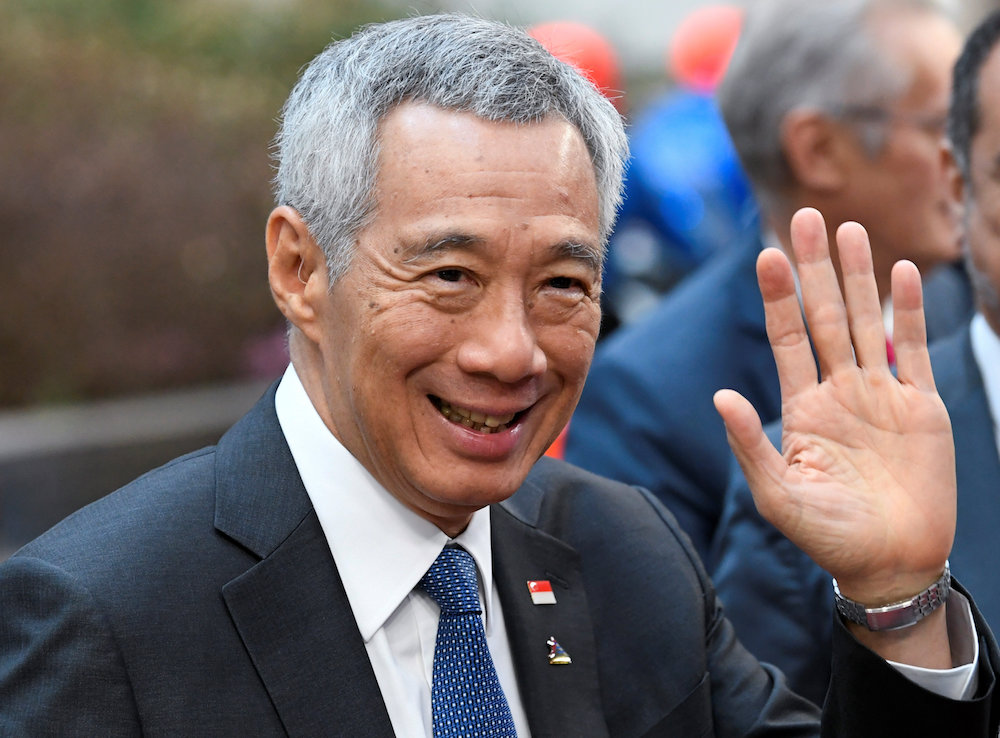SINGAPORE, March 30 — Singapore’s imminent fake news laws will give the Government the power to compel online news sources and platforms to show corrections or display warnings about online falsehoods, and — in extreme and urgent cases — take down an errant article.
This will ensure that readers and viewers can “see all sides” to a piece of information, and “make up their own minds about the matter”, Prime Minister Lee Hsien Loong said last night (March 29), as he gave a heads-up on the Protection from Online Falsehoods and Manipulation Bill, which will be tabled in Parliament on Monday.
In more aggravated cases, the legislation will prevent the spread of deliberate falsehoods before “irreparable damage is done”, said Mr Lee, who was speaking at a dinner celebrating Channel NewsAsia’s 20th anniversary.
The Bill was crafted after the Government accepted the Select Committee on Deliberate Online Falsehoods’ recommendations to tackle the scourge of fake news last September.
Just as what the select committee had recommended, Mr Lee yesterday also emphasised the need to ramp up public education initiatives in tandem with legislation as citizens, too, need to be “provided with the means to make sound assessments of what they read and hear”.
This is “no different” from the country’s approach to preventing crime, he pointed out. “We have strict laws against crime, which are strictly enforced, but each of us still needs to take our own precautions, and be the front line of defence working with the police to keep Singapore crime-free,” he said.
That is why schools are teaching information literacy and cyber-wellness, information literacy tips are being provided in public libraries, and the Government has a fact-checking website at Factually.gov.sg, where “accurate information” on government policies or issues of public interest can be found, he said.
The latest effort was a new fact-checking resource toolkit that the Media Literacy Council had launched, Mr Lee added.
While these are in place, spotting fake news is “easier said than done”, Mr Lee stressed, citing a recent survey which found that eight in 10 respondents were confident in their ability to identify fake news, but nine in 10 of them wrongly identified at least one fake news headline as being true when put to the test.
Calling the survey results “not surprising”, he said: “Fake news is not always obviously absurd, and even the most intelligent and well-trained of people can fall victim, unless they have specific knowledge about the matter.
“Because the whole intent of fake news is to deceive you, and to make you believe something that is plausible but, in fact, is false.”
Trusted News Sources ‘More Important Than Ever’
Mr Lee said that the media landscape had become a “far more cacophonous space”, and so Channel NewsAsia’s role as a trusted news source is now “more important than ever”.
“Viewers, readers and listeners need to know where they can get reliable and factual news. They know that you have researched and verified your stories, and organised and presented them as objectively as possible,” he said.
“They look to your brand and track record, and trust you to help them make sense of how and why things are happening, in order to form a coherent and accurate view of the world, and make their own well informed judgements and decisions.”
Pointing out that the dedicated news broadcast channel was launched at a time when international news broadcasting was dominated by BBC and CNN, which typically presented news from a Western perspective, Mr Lee said Channel NewsAsia’s success today could be seen by how it has become the “go-to channel” for key news events in Asia.
Beyond that, it has also reached more than 80 million households in 29 territories and won over 220 international awards in the last decade, he added.
“The Government, as one of your key partners, will work hand in hand with you,” said Mr Lee to his audience of 300 media professionals, government leaders, businessmen and foreign ambassadors.
“We will share an interest in fostering an informed society through quality journalism. We will continue to work with you to promote national and social objectives through our public service broadcast programmes.”
In his speech at the event, Mediacorp chairman Niam Chiang Meng said that the media landscape has changed, with aggregators, online news, celebrity bloggers and citizen journalism becoming commonplace.
“To stay relevant, Channel News Asia has been working hard to transform itself into a transmedia company, available on every platform that the public is using,” he said.
“We intend to be an impartial provider of accurate information and insights, and a source to uplift the standards of journalism and knowledge amongst the public.”
Meanwhile, it was announced that Channel NewsAsia will be adopting “CNA” as its brand name, dropping its television-centric reference to “channel” and embracing a new transmedia, multiplatform identity. — Today






















